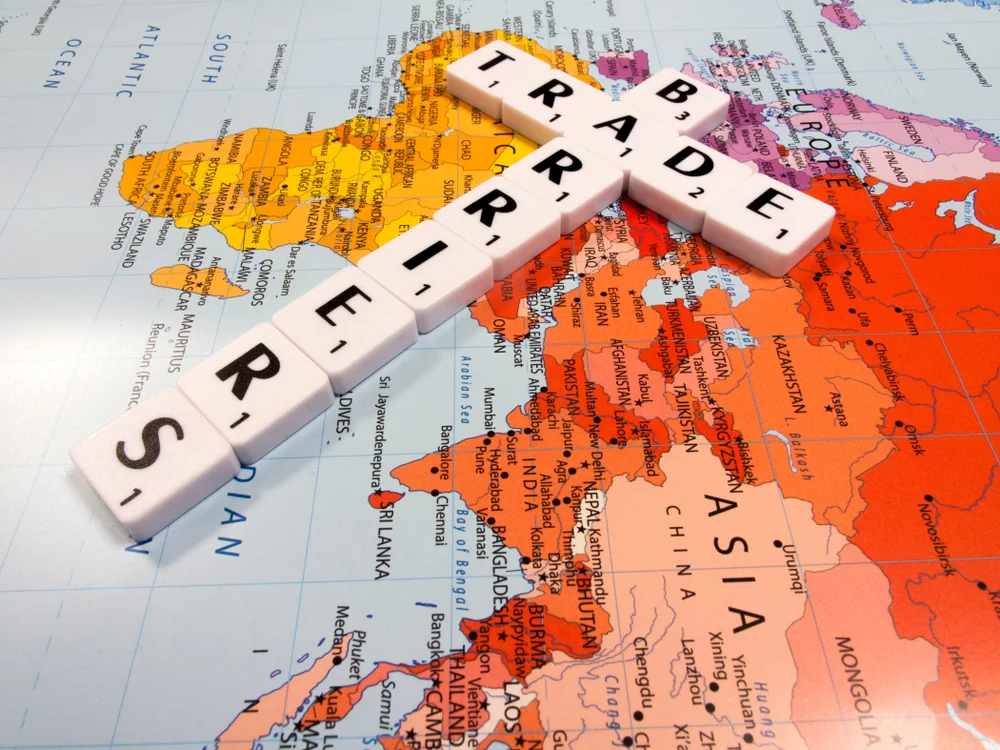In the recently released 2024 National Trade Estimate Report on Foreign Trade Barriers, the United States has revealed the obstacles to trade led by Nigeria’s customs practices.
The report outlines various challenges faced by importers and exporters, shedding light on import policies, non-tariff barriers, government procurement processes, intellectual property protection, services barriers, barriers to digital trade, and other barriers hindering trade with Nigeria.
Challenges for U.S. businesses in Nigeria:
- High costs and limited access: American companies encounter dual expenses when exporting to Nigeria. Initially, tariffs averaging 12% on imports, surpassing the WTO bound rate of 9.7%, inflate the cost of imported goods. Secondly, particular essential food items, such as rice and wheat flour, are subject to even higher combined duties exceeding 70%, rendering them less affordable for Nigerian consumers. Furthermore, a complete ban is in place on imports of various products, including poultry and certain vegetables, effectively excluding U.S. exporters from these markets.
- Bureaucratic complexity and delays: Dealing with Nigerian customs can be challenging. The report exposes inconsistent application of regulations, lengthy manual processing, and allegations of corruption, creating a bureaucratic maze that hampers cargo movement. This is particularly detrimental for perishable goods, which may spoil before reaching their destination, resulting in financial losses for importers. Although efforts are being made to automate customs procedures, progress is slow, and many fundamental processes remain paper-based. Delays can be substantial, with container ships waiting an average of 30 days to clear Nigerian ports.
- Port congestion and infrastructure deficiencies: Nigeria’s ports struggle to meet demand. Congestion and inadequate road conditions around these facilities cause bottlenecks and delays. Ships often wait for days or weeks before unloading cargo, significantly raising transportation costs. While the recently inaugurated Lekki Deepsea Port aimed to ease congestion, attracting sufficient traffic to make a meaningful difference remains challenging.
- Lack of transparency and ambiguous regulations: A conducive business environment relies on transparency and clear regulations. Unfortunately, U.S. companies express concerns about the lack of transparency in Nigeria’s regulatory system. Issuing final regulations without adequate public comment periods and inconsistent implementation create confusion for businesses striving to comply. Technical regulations for imports, especially for food and agricultural products, are not always grounded in sound science, leading to unnecessary trade issues.
- Unequal footing in government procurement: Transparency deficiencies and potential corruption in Nigerian government procurement processes deter U.S. firms from participation. Foreign companies encounter restrictions, often necessitating local partnerships or being barred from bidding on specific projects. Even after winning contracts, difficulties in receiving payments can further sour the experience.
- Intellectual property challenges: Despite some progress in bolstering its intellectual property framework, Nigeria still grapples with widespread piracy and counterfeit goods. Weak enforcement due to inadequate resources, porous borders, and corruption undermines IP protection. Increasing public awareness about the significance of IP for economic growth is crucial to fostering a culture of respect for intellectual property rights.
- Digital trade uncertainties: The digital trade sector in Nigeria poses unique challenges. Data localization requirements mandating the storage of user data within Nigeria could affect business operations. Additionally, ambiguous regulations and the prospect of enforcement related to value-added services create uncertainty for technology companies eyeing the Nigerian market.
- Currency difficulties impede investment: Restrictive foreign exchange measures restrict access to dollars for imports and profit repatriation, hindering investment and posing challenges for projects with USD-denominated debt obligations. Despite recent efforts to transition to a market-based foreign exchange system, shortages persist, complicating business operations.
- Costly and risky maritime trade: Nigeria’s maritime trade sector faces congestion, poor infrastructure, and corruption, resulting in some of the world’s most expensive ports. Container ships experience average delays of 30 days, significantly raising shipping costs. Maritime crime originating from Nigeria, although declining, continues to threaten maritime trade in the Gulf of Guinea.
- Export restrictions: Nigeria imposes export bans on various raw materials and agricultural products. While these bans may serve specific policy goals, they can also restrict market access for Nigerian producers, potentially impeding economic growth.
These trade barriers present a formidable environment for American businesses seeking to invest and trade in Nigeria. Addressing these challenges through enhanced transparency, improved infrastructure, and stronger enforcement mechanisms is crucial for fostering a robust and mutually beneficial trade relationship between the United States and Nigeria.
Source: Techeconomy

